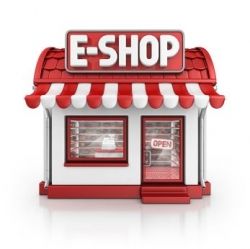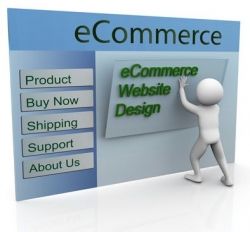How To Take An Existing Retail Business Online

Taking Your High Street Shop Online
If you already have a 'bricks and mortar' business then taking your business online could benefit you in many ways - creating more awareness of your brand - and more sales - but it's worth weighing up the pros and cons before deciding whether or not to take the plunge.

Want To Take Your Existing Business Online? Here's Where To Start .
If you currently run a 'bricks and mortar business' have you considered how you could benefit from selling your goods online too?
Before you rush headlong into signing up for one of those ecommerce stores that are frequently touted online, here's what you need to know . . .
1. Begin With The Bestsellers
It's usually true that 80 per cent of your sales will be generated by 20 per cent of your products. Therefore your main focus should be getting that top selling 20 per cent of products into your 'virtual' store first. It may be that you will want to add other lines from your inventory as you go along.
Alternatively, if your bestsellers are doing such a great job for you, you may decide to stick with them, freshening up the look and feel of your store every quarter (if seasonality is a factor). Also, if you stock thousands of products, putting an entire catalogue online can really amount to a lot of hard work.
2. Maximise Supplier Relationships
Use your existing relationships to help your virtual store take off. Sell sheets, product images, style guides, articles, manuals (PDFs), are all potentially available from manufacturers and wholesalers. These marketing tools can add interest and authenticity to your site as well as increase visual appeal for your customers.
And don't be afraid to ask for a link from a manufacturer or supplier's website to yours, so you can get added traffic, improve your website's page rankings - and crucially - make more sales. Many traders are reticent about asking for a link, but think of it this way: if your wholesaler helps you do more business online then it's a win-win situation because it means you will be buying more stock from them in the future!
3. Be Where Your Customers (And Competitors) Are
Your customers are online already and so are your competitors - you need to be too. According to the Centre For Retail Research: "ecommerce is one of the fastest growing markets in Europe." Online sales in the UK alone were £50.34 billion, equivalent to 12 per cent of UK trade overall. Who wouldn't want a slice of this enormous pie?
4. Make It Easier To Get Found
To get a stream of regular traffic to your ecommerce store you need to be found easily. Start by getting your website URL listed in industry directories and Google Places. Learn and implement the basics of search engine optimisation, or find a professional who can do it for you - and do it well - and consistently.
5. Create Loyalty Among Your Visitors
Don't be content with getting 'random' traffic, you need to convert your visitors into happy customers. One of the best ways to do this is to create a lead capture form on your website, or a dedicated 'squeeze page' where visitors leave you their name and email in return for something of value. This could be as simple as a loyalty voucher or branded card they can use for future purchases.
6. Use Your Email List To Develop Trust And Build Lasting Relationships
Some ecommerce organisations only mail their list when they have something to 'peddle' which is a huge mistake. People will soon get fed up with businesses who ask them to spend money in every communication - they will simply click on the 'unsubscribe' link and you will have lost them (and their business) forever.
The best thing is to put yourself in your customers' shoes and think how you can regularly add value to your relationship with them. You could even do a brief survey on your website asking customers what additional products or features they would like to see in your store. Or perhaps what kind of loyalty gift they would prefer - branded items - or money off their next purchase.
Some business owners congratulate themselves on making the leap from offline to online trading believing that in itself is enough. The harsh reality is, having a web presence or ecommerce website for your businesss is only the beginning.




